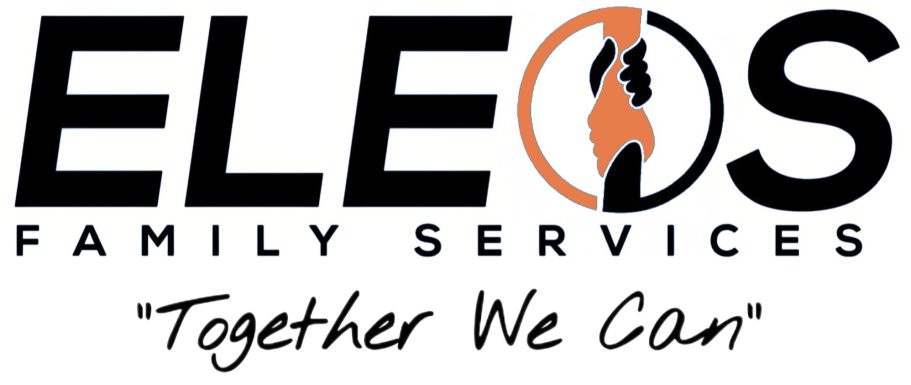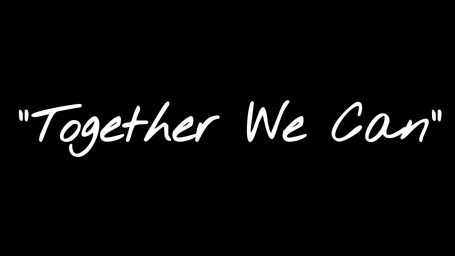Eleos' Governance, Risk & Compliance (GRC) provides a comprehensive framework designed to strategically identify, manage, and mitigate risk in order to enhance individual health, safety, and protection from harm, and optimize meeting the goals of individuals. This includes improving the ability to identify and reduce risk to individuals and to ensure a high quality of support services that we deliver. Additionally, the policy covers potential risks associated with non-compliance with applicable federal, state, and local regulations and laws, DDD guidelines, and Eleos' internal policies and procedures.
Governance, Risk & Compliance

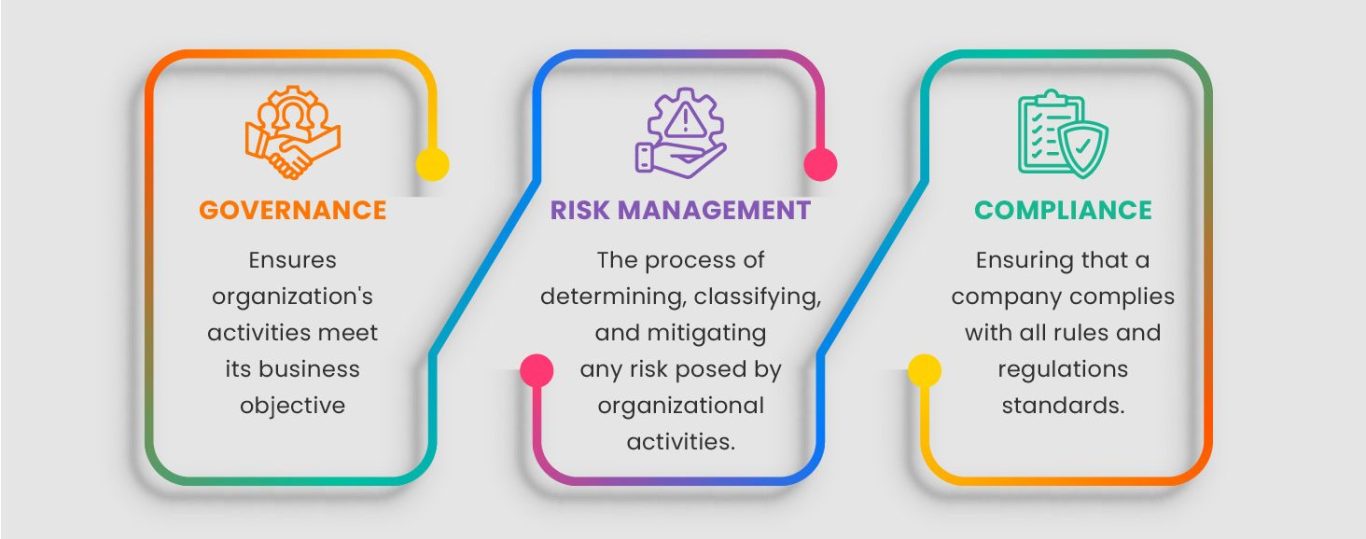
Governance
Enterprise risk management and assessment
Board compliance capabilities such as options policy compliance, ethics and policy compliance, etc.
Business performance reporting such as balanced scorecards, risk scorecards, operational controls dashboards, etc.
Policy management, documentation, and communication
Risk Management
Risk identification and reporting
Risk assessment of Risk analysis and prioritization
Root cause analysis of issues and mitigation
Risk analytics and trend analysis
Compliance
Flexible controls hierarchy
Assessments and audits
Issue tracking and remediation
Analytics
Integrated policy and document management capability that should cut across all GRC departments

Three Lines of Defense (3LOD)
A "line of defense" refers to a distinct level within our organization responsible for managing and mitigating risks, with each line having specific roles and responsibilities in ensuring adherence to regulations, policies and procedures, typically categorized as the first line (frontline staff, management), second line (compliance and risk management), and third line (internal audit) which independently assesses the effectiveness of the other lines; essentially acting as a layered approach to risk management.
The Risk Management Framework at Eleos employs a three lines of defense model:
- First Line of Defense: (Frontline Staff, Supervisors & Management)
Operational management is responsible for the daily identification, assessment, and mitigation of risks. They are responsible for identifying, assessing, and mitigating risks on a day-to-day basis. They also have to implement corrective actions.
- Second Line of Defense: ( Governance, Risk Management, Compliance (GRC))
This is the risk management and compliance functions. The Compliance Manager oversees risk management activities, develops policies, and implements procedures and controls and the subsequent training. GRC is responsible for overseeing the risk management activities of the first line of defense.
- Third Line of Defense: ( Governance, Risk Management, Compliance (GRC))
Internal audit provides independent assurance to the board and senior management regarding the effectiveness of the risk management framework. This is the internal audit function. The internal audit function provides independent assurance to the board and senior management that the risk management framework is operating effectively.
This framework ensures a comprehensive approach to risk management within the organization.
The three lines of defense model is a helpful tool for our organization. By adhering to the three lines of defense model, Eleos will ensure strong and robust risk management capabilities and reduce the likelihood of non compliance and adverse events.
Eleos Internal Audit Guidelines is aimed to provide Eleos management and staff with guidance on how to effectively navigate the audit process and demonstrate their commitment to compliance for both internal and external audits
- Understanding an Audit.
- Identifying Stakeholders
- Gather Audit Documentation
- Cooperation & Communication
- Control Review
- Professional Conduct
- Documenting the Audit
- Post Audit
Q. Why does Eleos as an agency need a policy and procedure manual, and what is the purpose?
A. We do the right thing!
DDD, DCF, CSOC require us as a provider agency to have policies and procedures in place to assist us with being in compliance with applicable regulations and requirements.
Policy & Procedures safeguard our processes as guidance for ensuring that we are doing the right thing in the right way and that we can make certain of the safety, health and well being of ourselves, coworkers and the persons that we support.
DDD, CSOC Requirements
Policies
Medicaid Fraud, Waste & Abuse (FWA)

Medicaid Fraud is a serious crime.
Fraud – is an intentional deception or misrepresentation made by any person with the knowledge that the deception could result in some unauthorized benefit to that person or another person, including any act that constitutes fraud under applicable federal or State law.
Medicaid Fraud Control Unit (MFCU)
The MFCU, within the Office of the Insurance Fraud Prosecutor (OIFP) is the criminal oversight entity.
HIPAA

Protects: Health Information of U.S. citizens
Affects: Organizations worldwide that hold or process health data related to U.S. citizens.
Penalties: $100 to $50,000 per violation ( or per record), with a maximum penalty of $1.5 million per year.
HIPAA Privacy Rule
The Health Insurance Portability and Accountability Act of 1996 was enacted to make it easier for people to keep health insurance and to provide a minimum standard for the safeguarding of sensitive patient data, as well as combating exploitable aspects in health insurance and healthcare delivery. Over the past two decades, HIPAA compliance requirements have undergone a series of updates, with the most notable being written on April 14, 2003, as it set a precedent for what constitutes Protected Health Information (PHI).
For more Information on Eleos' responsibility and your role to comply with HIPAA, click the button below.
Eleos Policy & Procedures
The Support Program and Community Care Program manuals, require us as an Agency to have policies and procedures in place to assist us with being in compliance with the regulations and requirements of the DDD Medicaid fee for Service System.
CSOC Chapter 11 require us as an Agency to have a policy and procedures in place to ensure our alignment with applicable regulations and requirements of DCF.
POLICIES
Policies are guidelines or rules, which are approved by our agency's management that detail a course of action by the provider in specific situations.
PROCEDURES
Procedures establish the steps in which tasks and processes will be completed.
- A procedure articulates a detailed and sequential process.
- The process is designed to enable staff to perform an activity, with minimum variation to achieve an identified, defined, and consistent outcome.
As an agency we have elected to develop policies and procedures (P&P’s) that extend beyond what is required by DCF, CSOC and DDD. Including internal policies, but not be limited to, codes of conduct, workplace discrimination and termination, etc.
As an agency, our P&P'S are reviewed annually and updated as needed, to ensure that the manual reflects current practice.
If you have a policy or procedure question or concern please contact our Compliance Manager Marquis Johnson
m.johnson@eleosfamilyservices.com.

Guiding Principles
Dignity
We esteem the humanity of people with children, youth, young adults and adults with IDD as image bearers of God, possessing inherent value and purpose.
Individuality
We celebrate the uniqueness of children, youth, young adults and adults with IDD, their experiences, talents, gifts, values, goals and interests. This includes support for the self determined decisions with regards to their life, fulling their potential and purpose.
Rights
We support, advocate for the equitable and protected rights of children, youth, young adults and people with IDD.
Community
We aim for the involvement, integration and contribution of children, youth, young adults and adults with IDD as present participants within our society. This is for the good of both children, adults with IDD, families and our community.
Support
We believe at every level of our society we must provide assistance to children, adults with IDD and their families.
Equity & Equality
We believe society must remove barriers and correct injustices that limit opportunities. Extra action is needed to assist children, adults with IDD and their families, who face other forms of bias or discrimination.
Diversity
We believe human diversity is beautiful and powerful. We celebrate, honor, and seek to understand the differences in our identities and life experiences and connect in the things we all share.
Our Guiding Principles describe our beliefs and philosophy as a company. The principles are intended to guide what our company does, why it does it and how.
Guiding principles dictate how we want our company to behave, especially when our leaders are not around. We are setting out a principle, carried out in our policies and procedures that staff can use when they're confronted with a situation where they don't know what to do.
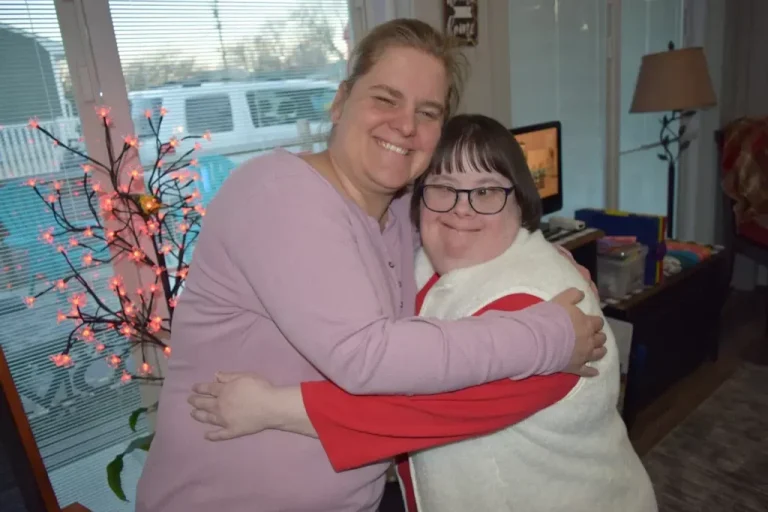
Participant Statement of Rights & Responsibilities
The rights and responsibilities of an individual with an intellectual or developmental disability receiving supports and services through the New Jersey Division of Developmental Disabilities (Division) include, but are not limited to, the following
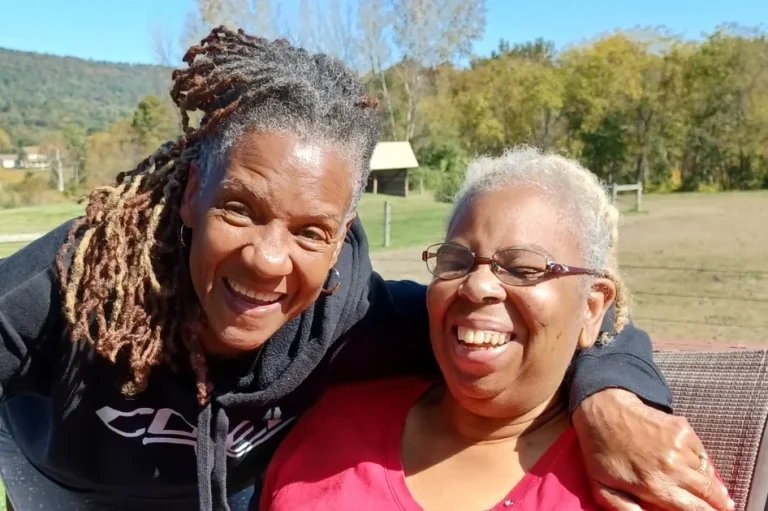
Respect: Code of Ethics for Support Staff
Our Code of Ethics is intended to guide support staff in resolving ethical dilemmas they face every day and to encourage them to achieve the highest ideals of the profession. This Code of Ethics is not the handbook of the profession, but rather a roadmap to assist us in staying the course of securing freedom, justice, and equality for all.

Beneficiaries Rights & Responsibilities
Eleos will ensure that children, youth, adolescents and their families will be provided with their rights, responsibilities and Eleos’ provider requirements and staff responsibilities. In addition, IIC/BA employees who will deliver supportive services will receive Beneficiary Rights & Responsibilities, Staff Responsibilities to review, acknowledge and sign during the onboarding process. This policy applies to all Eleos IIC/BA staff regardless of position or rank, employment relationship and employment status, including potential new hire candidates.
We need your consent to load the translations
We use a third-party service to translate the website content that may collect data about your activity. Please review the details in the privacy policy and accept the service to view the translations.
